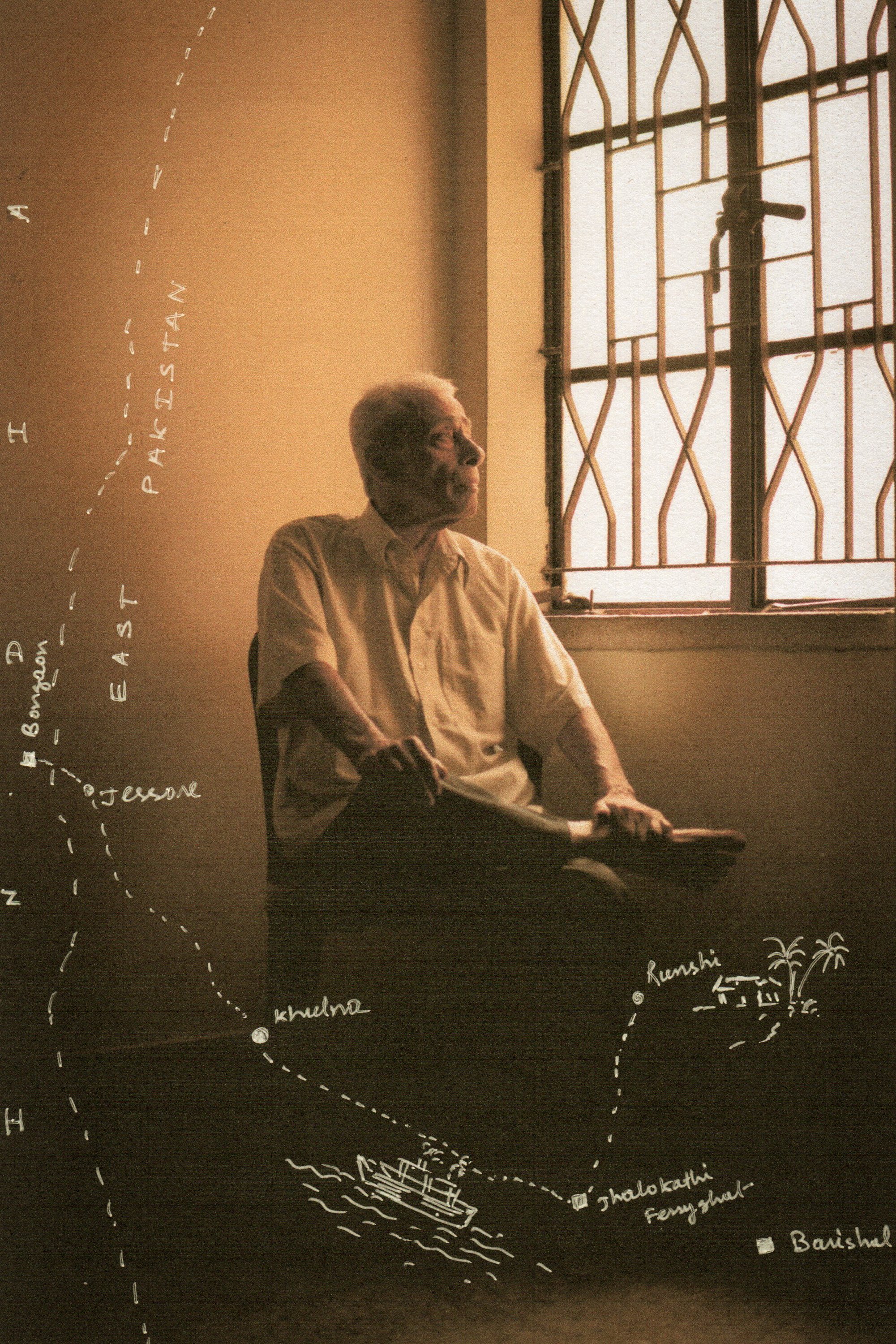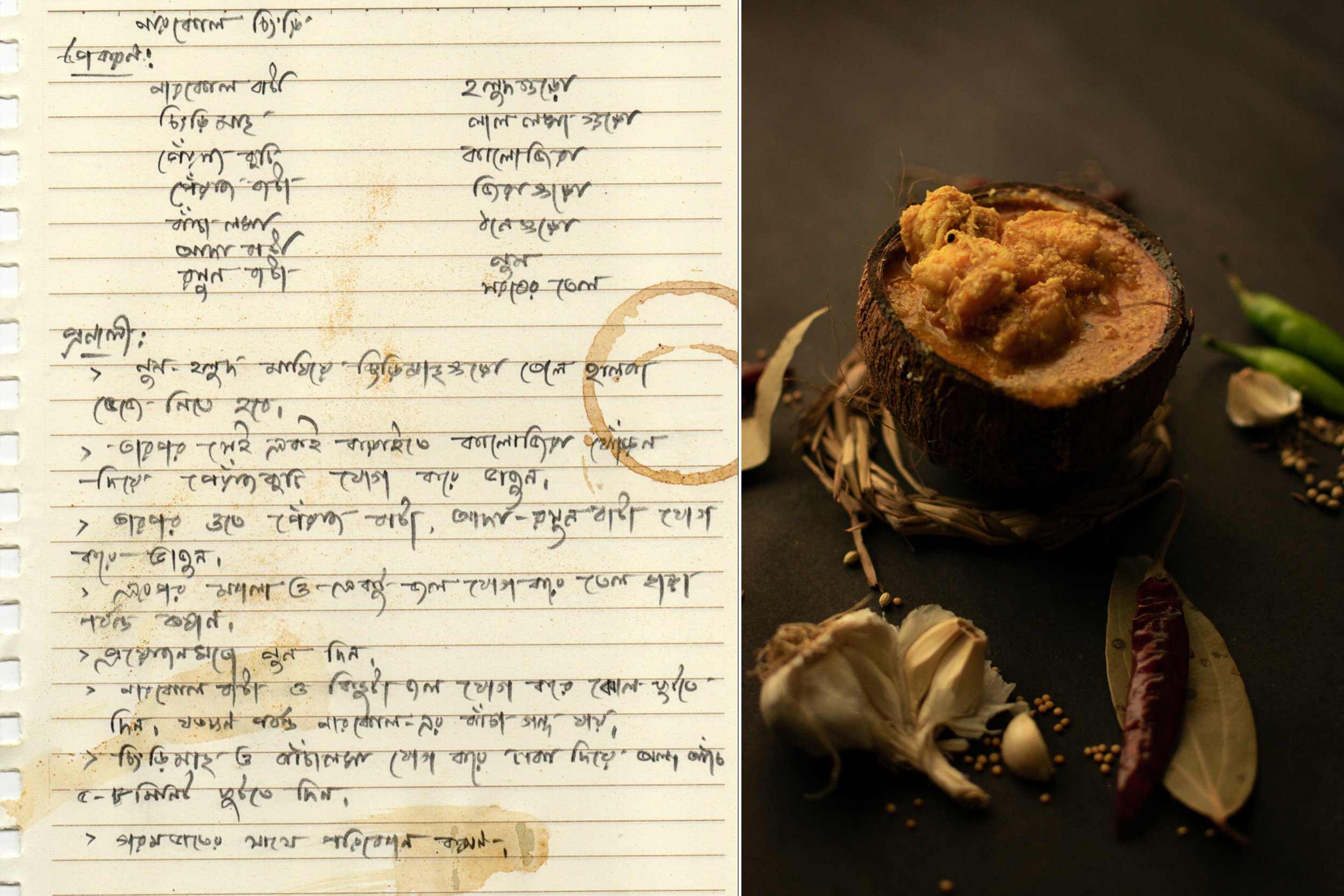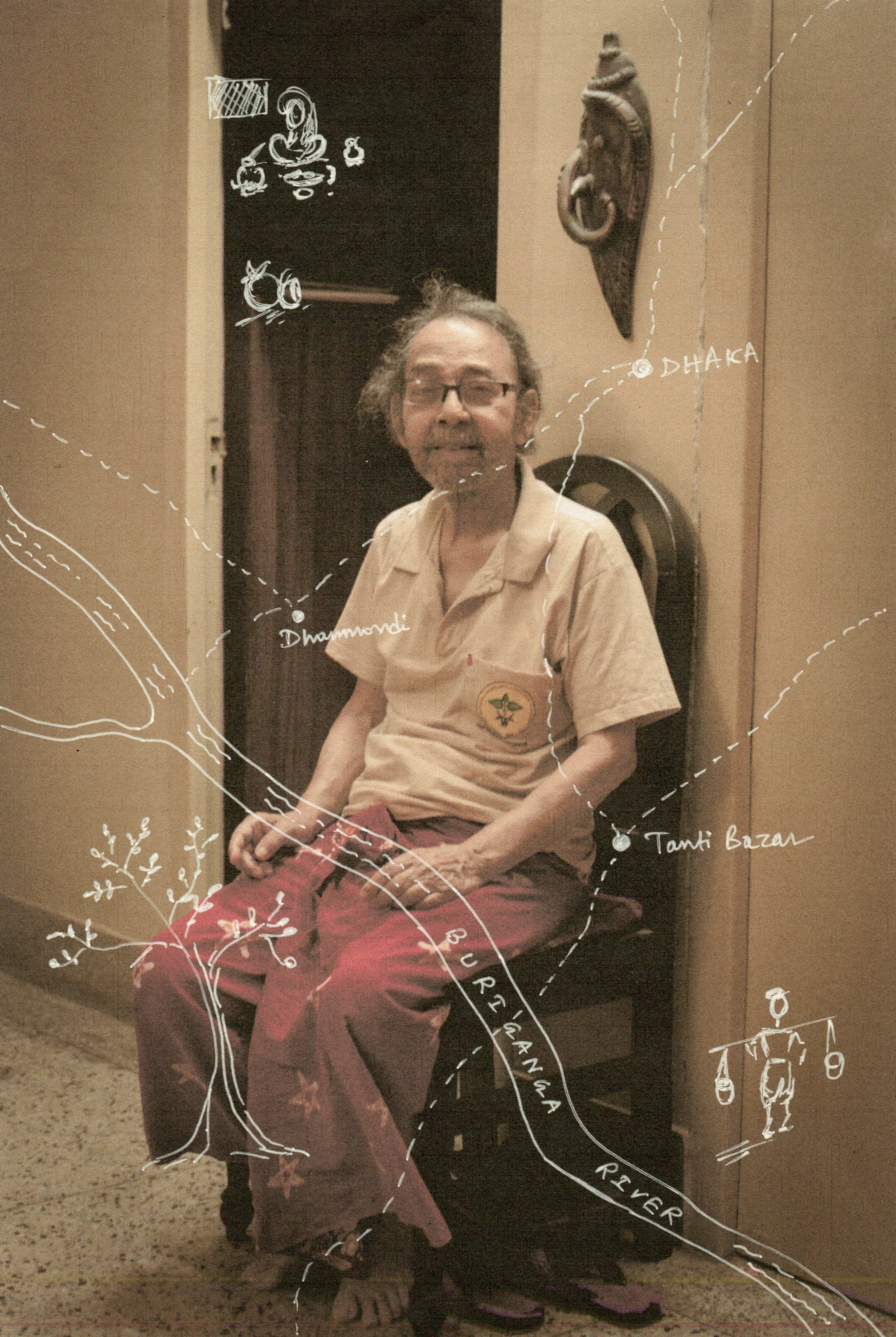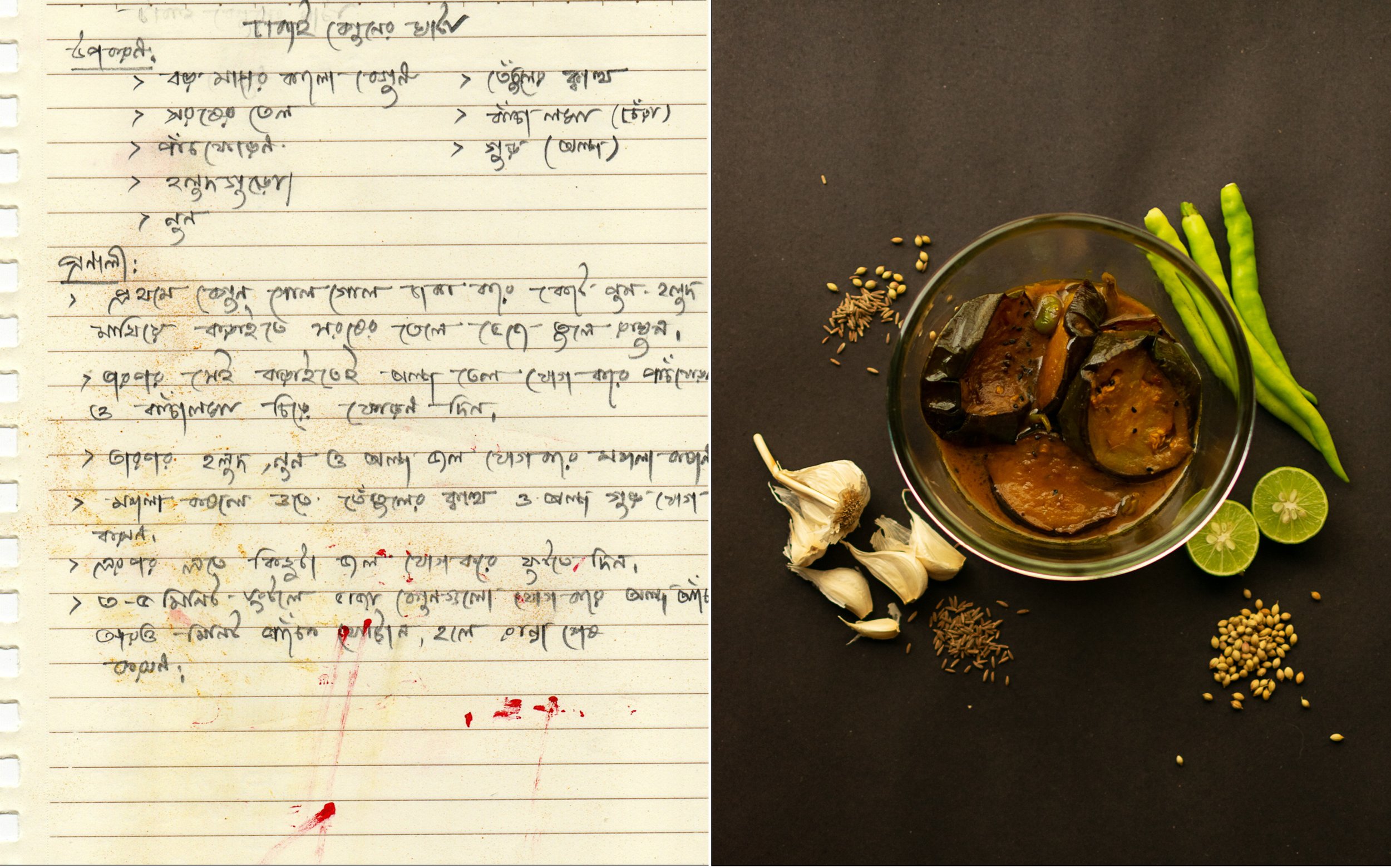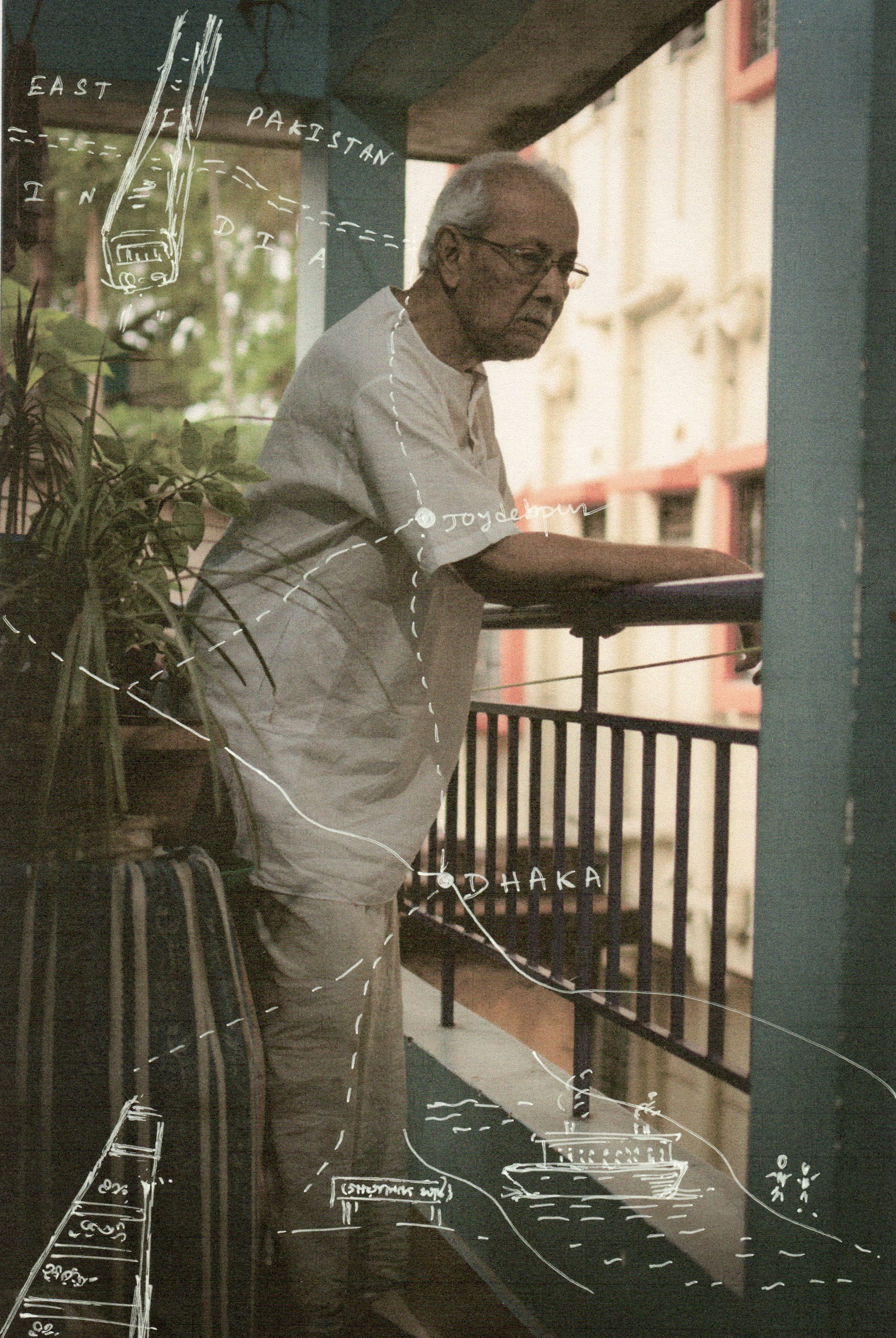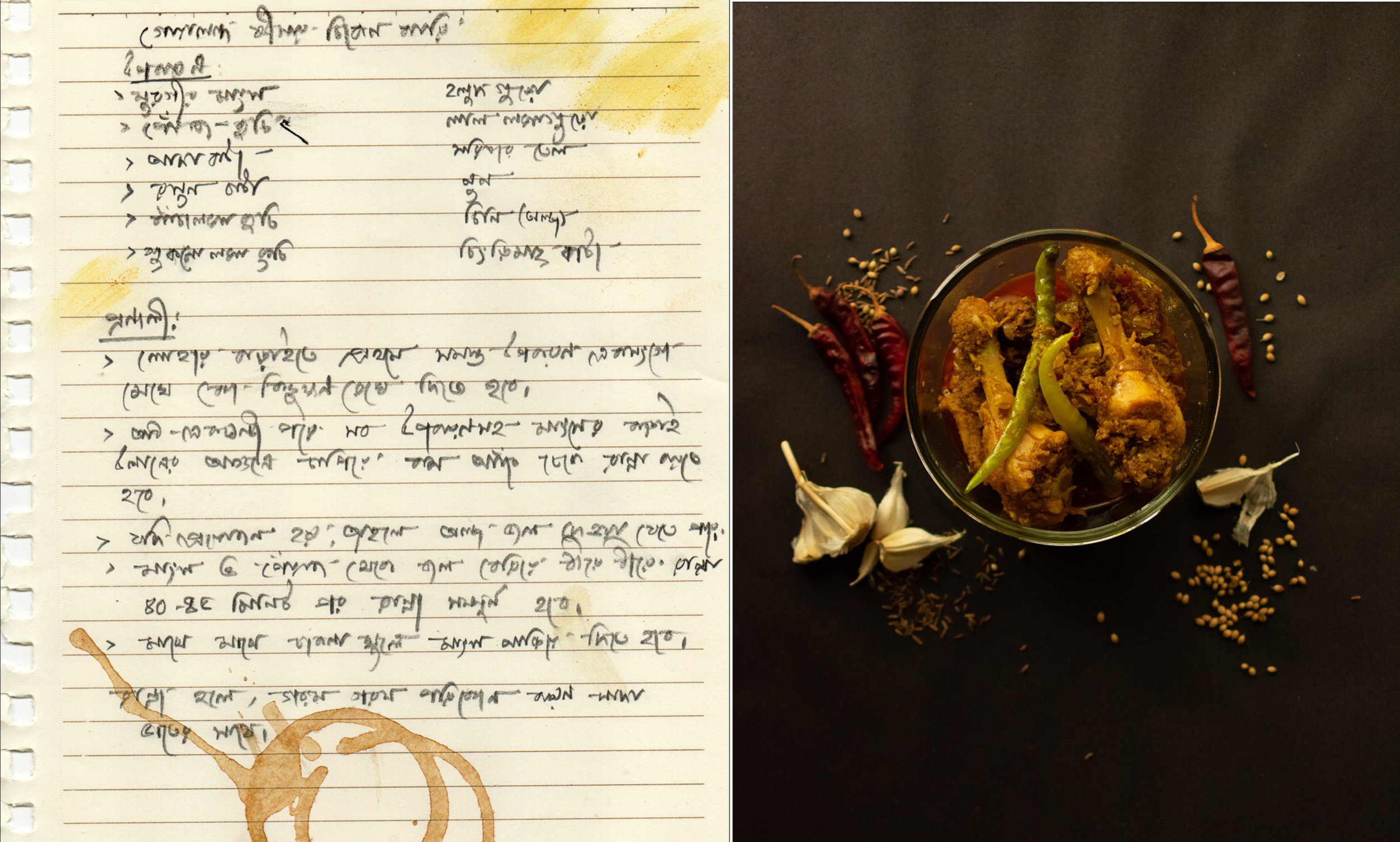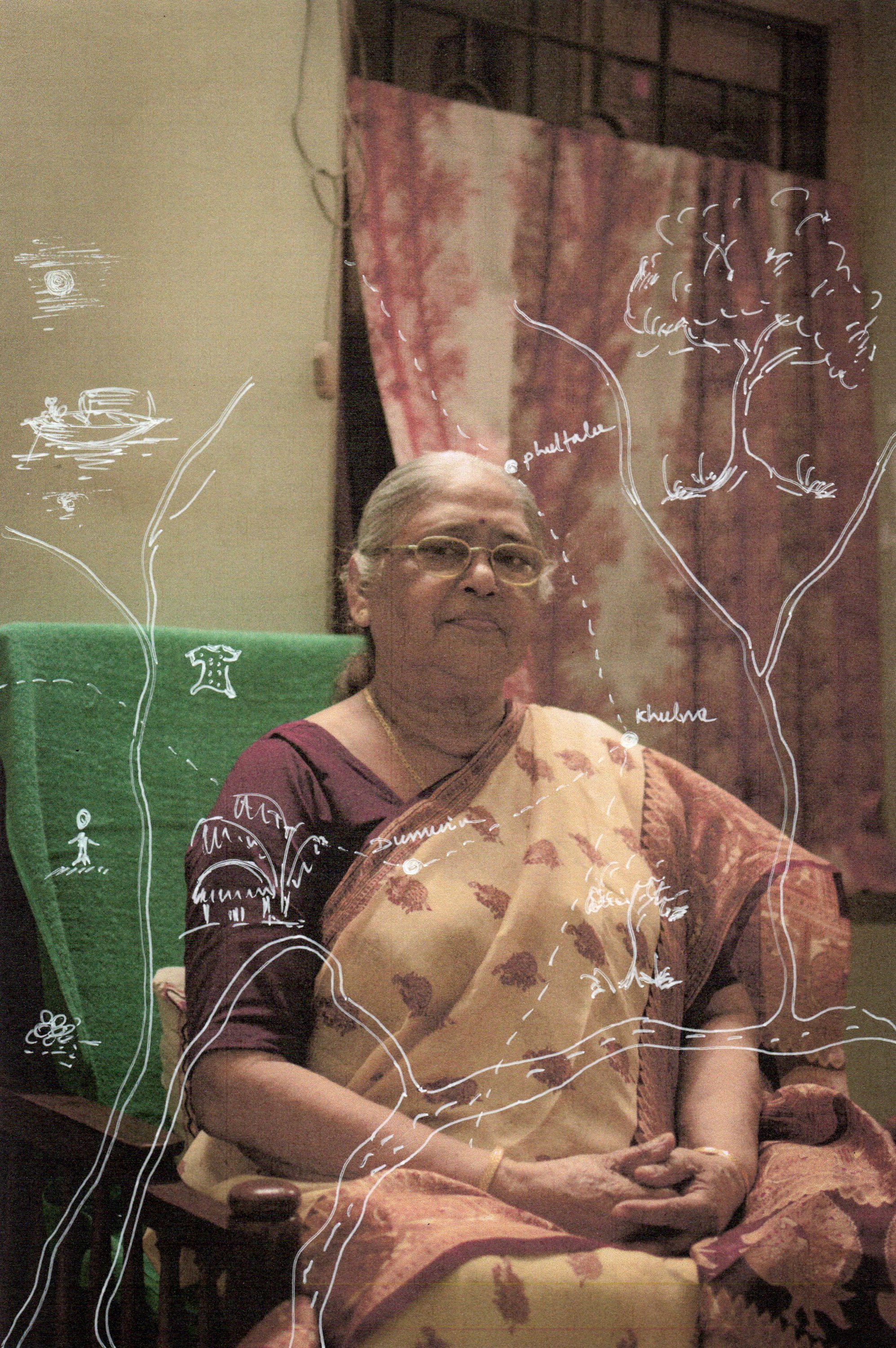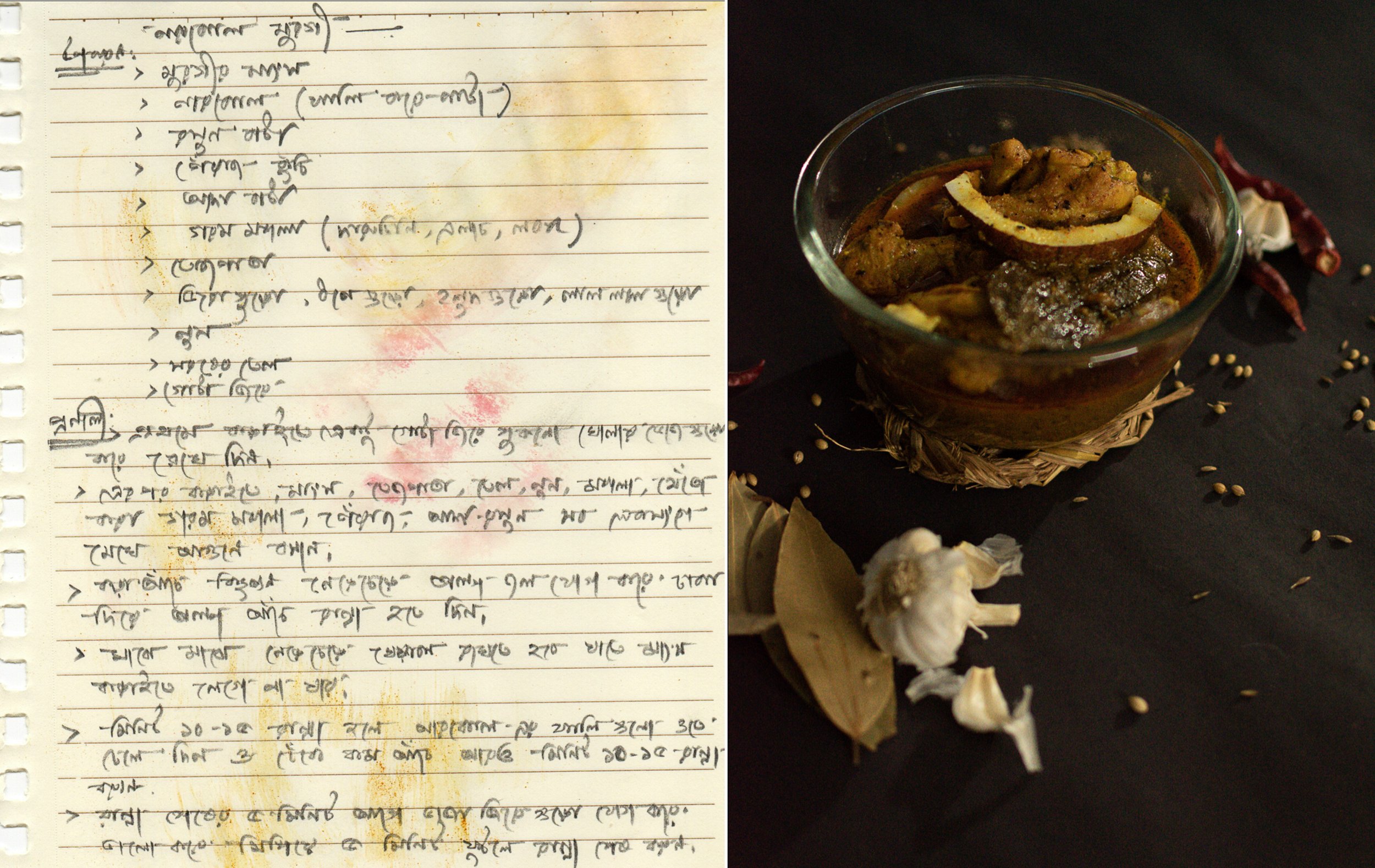“Approximately 650,000 Bengali Hindus fled the Barishal district of then East Pakistan, present Bangladesh in February, 1950. My father was one amongst them. Then aged five, my father had accompanied his parents and siblings as they sought refuge braving the cacophony that followed the partition of India in 1947. The partition, one of the largest forced migrations documented, had affected the eastern and western frontiers alike. However, the eastern frontier continued bearing the aftermath for several decades with huge influx of migrants every year until the Bangladesh Liberation War in 1971.”
WORDS & IMAGES BY SHUBHADEEP MUKHERJEE
Mr. Dilip Mukherjee (my father), was 5 years old when one afternoon, my grandfather stormed in and announced the plans to depart…
Baba always has had an affinity towards prawns and coconuts alike because from his home on the banks of river Kirtankhola in Barishal, coconut trees line up in rows.
‘Narkel Chingri’ is a famous dish from Barishal and my father has grown up relishing it.
Baba recollects how he had secretly sneaked in some pickle and how the help had packed some rice and Narkel Chingri for the journey.
When I cooked it at home, he walked up to gauge the familiar smell—the taste of his home.
Mr. Samaresh Chandra Ray had found a playmate in Abdul, whose family had migrated a few months back from Bihar.
Abdul’s mother had cooked a tangy eggplant curry one afternoon that Samaresh had loved.
Popularly known as ‘Dhakai Beguner Khata,’ this simple preparation traces its origins to the migration of muslims from Bihar, India to Dhaka, East Pakistan (present Bangladesh) during the partition of India in 1947.
The word ‘Khata’ comes from the Hindi ‘Khatta’ that means sour/ tangy. The lack of freshwater brought people to use the saline river water for cooking. To combat the salty taste came the use of tamarind paste, which was abundant in Bihar.
Despite its origin, the dish takes its name after the city of Dhaka where it gained popularity afterwards.
Samaresh was barely 8 when they had to leave their house and flee to India. As he recollects memories, he smiles at the thought of the sumptuous lunch he had once shared with Abdul.
Mr Bhawani Prasad Mukhote had just stepped into his teens. During the 1950 Dhaka riots, his parents had forced him to leave home for Calcutta. He had to take a 7-hour ferry that would connect Dhaka to the nearest port—‘Goalondo Ghat’—from where a train would take him to Calcutta.
‘Goalondo Chicken Curry’ is a preparation that uses locally sourced ingredients. To combat the long and tedious journey, the boatsmen from Dhaka would prepare a concoction of chicken that would be served with rice. The invigorating smell of rich spices would fill the air around, thus making the passengers inquisitive of its ingredients. The uniqueness of this dish lies in the usage of prawns that were in abundance in the rivers as a spice.
He had just returned from school and remembers that he had had no food either. The smell of the curry on the boat entwined with the pain of leaving home had aggravated his hunger. At 92 today, he says, ‘If the borders disappear even today, I’d run back to my hometown just for that smell once again.’
During the partition and post-partition days, mutual exchange of houses and properties were a major means of ensuring smooth relocation. Mrs Jaya Chandra’s family had done the same. However, the new muslim owners of their house had reached uninformed and ahead of time.
‘Narkel Murgi’ hails from Jessore-Khulna that abounds in coconut.
The shell of the fruit had just been broken when the call to leave came. The fire in the stove hadn’t died down when they took the last look at their house.
Jaya smiles and recollects the jamun tree under which she and her friends would feast often and the evenings when they’d collect the fruits. She smiles and narrates how her frock would be all purple.
‘After we reached here, I felt that my voice had been muted’ she says.
WORDS FROM THE CREATOR
My work, ‘Smells Like Home’(2021- ongoing), is inspired by my father’s journey as a 5-year- old from then-East Pakistan to India after Indian Independence in 1947. This is my personal narrative that explores the concept of ‘Home’ from the perspective of childhood.
During my research, I found that every incident that I had come across had one common attribute—the aroma of the spices from their kitchens. Even after having migrated to a different country and after having lost almost everything, survival required food—that one thing that had entwined with it memories of bygone days.
While the ingredients can be replaced and reevaluated, the food that satiates hunger after a long and tedious journey not only reminds one of their lost motherland but helps their newfound world Smell like Home.
Shubhadeep Mukherjee is the recipient of a scholarship for PWB’s Art of Storytelling course. See more about this and other courses we offer here.
